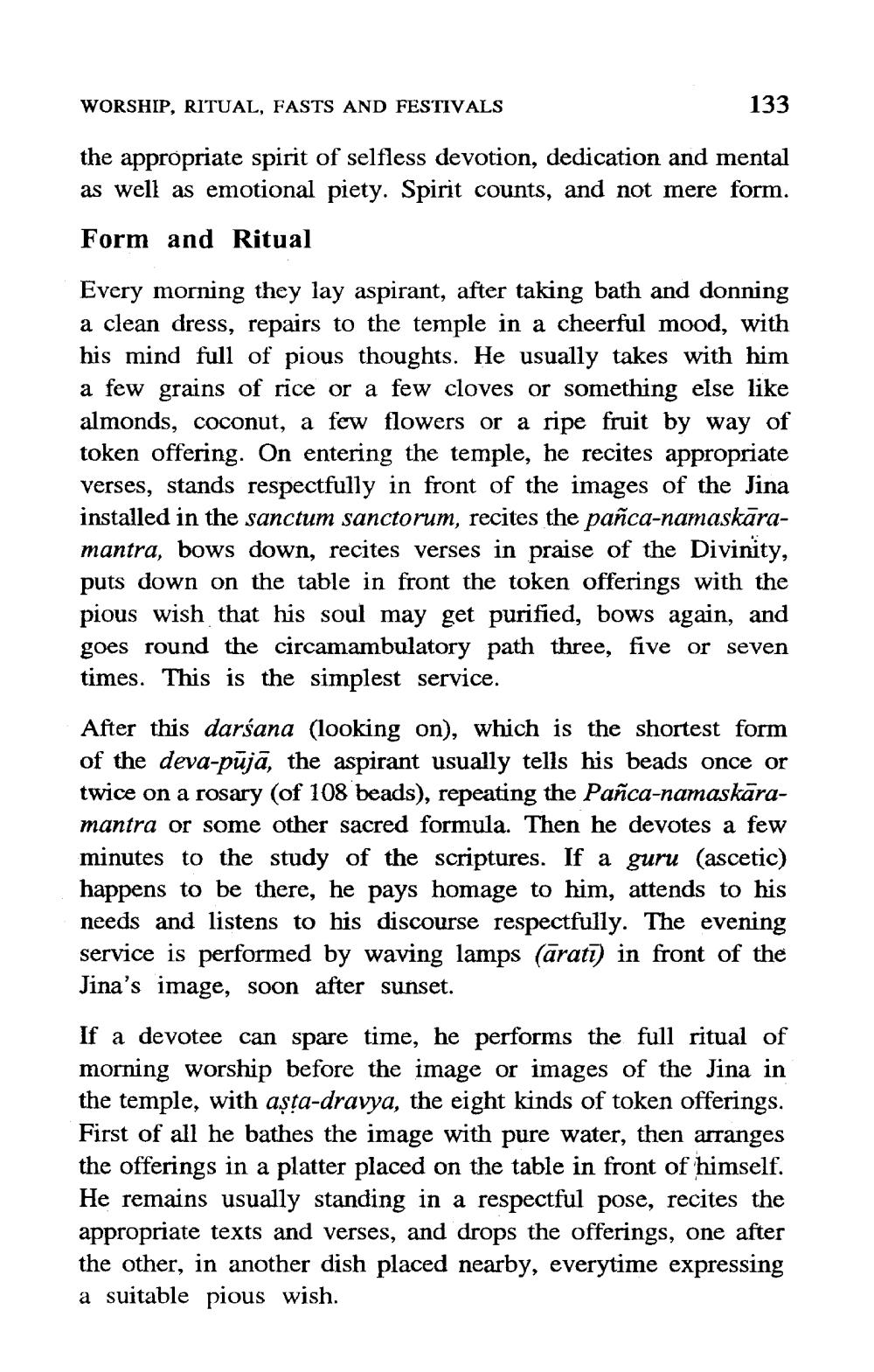________________
WORSHIP, RITUAL, FASTS AND FESTIVALS
133
the appropriate spirit of selfless devotion, dedication and mental as well as emotional piety. Spirit counts, and not mere form.
Form and Ritual
Every morning they lay aspirant, after taking bath and donning a clean dress, repairs to the temple in a cheerful mood, with his mind full of pious thoughts. He usually takes with him a few grains of rice or a few cloves or something else like almonds, coconut, a few flowers or a ripe fruit by way of token offering. On entering the temple, he recites appropriate verses, stands respectfully in front of the images of the Jina installed in the sanctum sanctorum, recites the pañca-namaskāramantra, bows down, recites verses in praise of the Divinity, puts down on the table in front the token offerings with the pious wish that his soul may get purified, bows again, and goes round the circamambulatory path three, five or seven times. This is the simplest service.
After this darśana (looking on), which is the shortest form of the deva-pūjā, the aspirant usually tells his beads once or twice on a rosary (of 108 beads), repeating the Pañca-namaskāramantra or some other sacred formula. Then he devotes a few minutes to the study of the scriptures. If a guru (ascetic) happens to be there, he pays homage to him, attends to his needs and listens to his discourse respectfully. The evening service is performed by waving lamps (āratī) in front of the Jina's image, soon after sunset. If a devotee can spare time, he performs the full ritual of morning worship before the image or images of the Jina in the temple, with așta-dravya, the eight kinds of token offerings. First of all he bathes the image with pure water, then arranges the offerings in a platter placed on the table in front of himself. He remains usually standing in a respectful pose, recites the appropriate texts and verses, and drops the offerings, one after the other, in another dish placed nearby, everytime expressing a suitable pious wish.




